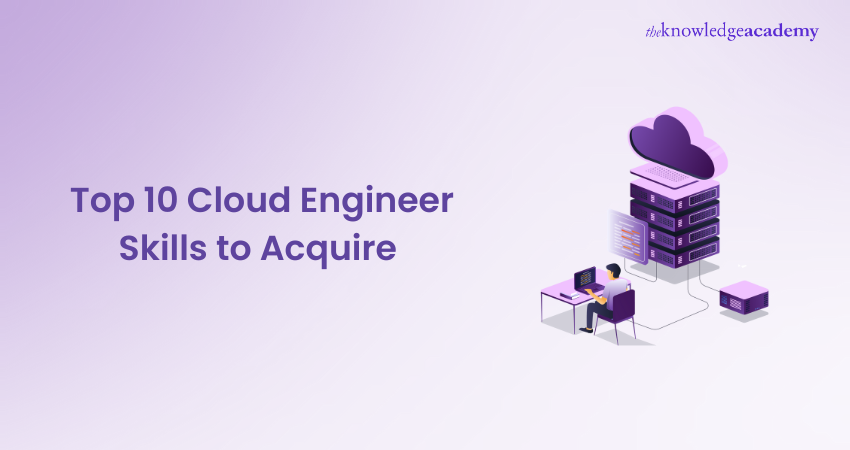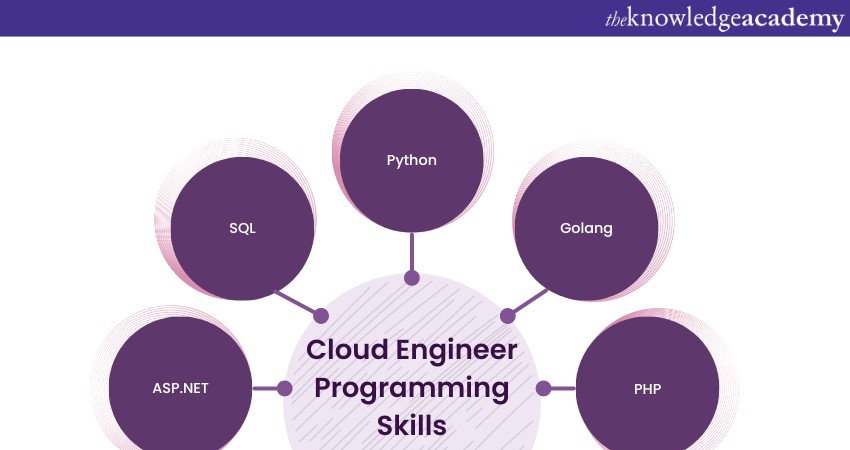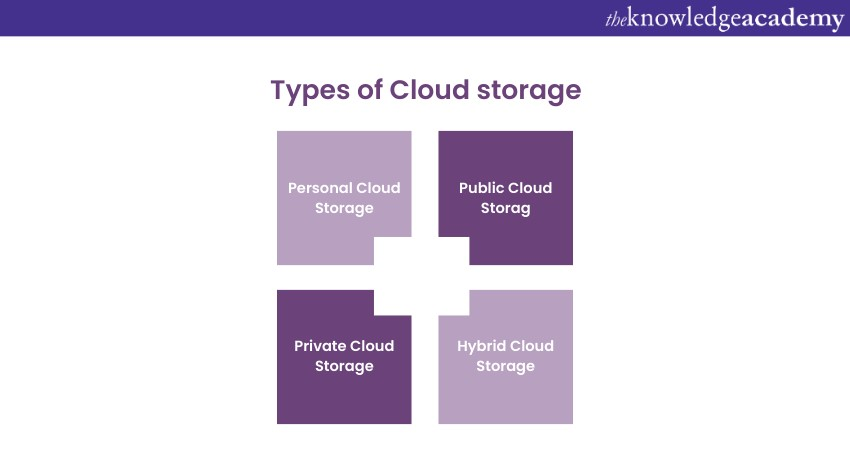We may not have the course you’re looking for. If you enquire or give us a call on +44 1344 203999 and speak to our training experts, we may still be able to help with your training requirements.
Training Outcomes Within Your Budget!
We ensure quality, budget-alignment, and timely delivery by our expert instructors.

As businesses continue to migrate their operations to the cloud, the demand for skilled Cloud Engineers has never been higher. Cloud Engineers play a pivotal role in designing, building, and maintaining cloud infrastructure to ensure that companies can harness the full potential of cloud technologies. Whether you're already in the field or looking to become a Cloud Engineer, it's crucial to understand the key Cloud Engineer Skills needed to excel in this role.
According to devITJobs, the average salary for a Cloud Engineer in the UK is GBP 62000 per annum. With such handsome compensation packages, learning these key skills might be worth your time if you want to get into the domain. In this blog, we'll explore the essential Cloud Engineer Skills you must possess to thrive in this dynamic and high-demand profession. Keep Reading!
Table of Contents
1) Who is a Cloud Engineer?
2) Skills needed to be a Cloud Engineer
a) Cloud Platform Proficiency
b) Understanding Linux OS
c) Programming Skills
d) Networking and Internet Protocols (IP)
e) DevOps and Containerisation
f) Cloud Storage
g) Virtualisation
h) Security and Recovery
i) Web Services and API
j) Continuous Integration and Continuous Deployment (CI/CD)
3) Conclusion
Who is a Cloud Engineer?
A Cloud Engineer is a professional responsible for designing, implementing, and managing cloud-based infrastructure and services. They ensure the efficient and secure deployment of cloud solutions, troubleshoot issues, and optimise cloud environments to meet organisational needs.
Their role involves working with cloud platforms like AWS, Azure, or Google Cloud to support scalable and reliable IT operations.
Skills Needed to be a Cloud Engineer
Here are the key skills you need to acquire as a Cloud Engineer to advance your career to the heights you desire:
1) Cloud Platform Proficiency
As a Cloud Engineer, it’s crucial to be familiar with the three major public Cloud Computing platforms: Amazon Web Services (AWS), Microsoft Azure, and Google Cloud Platform (GCP). Your choice may depend on your employer.
However, the knowledge of all three platforms can make you more appealing to recruiters and hiring managers. Each provider offers training courses to help you master their platform and acquire the skills needed for roles that utilise their systems.
2) Understanding Linux OS
Linux is integral to Cloud Computing due to its modularity, efficiency, and open-source nature. Cloud Engineers prefer Linux for its reliability and ability to support critical workloads, simplify software development, and enhance projects.
Mastery of Linux is crucial as it transforms single-machine systems into robust, interconnected networks. This makes it a fundamental skill for navigating the digital landscape and optimising cloud storage solutions.
Master the art of Linux OpenStack administration and unlock a world of Cloud Computing possibilities with our Linux OpenStack Administration Training.
3) Programming Skills
Programming Skills are a crucial component of becoming a proficient Cloud Engineer. They play a fundamental role in enhancing one's cloud knowledge and simplifying operations. Proficiency in specific programming languages is essential for Cloud Engineers to succeed. These languages include:

a) ASP.NET: Creates dynamic web pages and solutions that are compatible across browsers.
b) SQL: Manages and processes large datasets efficiently.
c) Python: Essential for developing serverless applications, especially in AWS.
d) Golang: Useful for handling concurrency and parallelism, particularly in GCP.
e) PHP: Automates tasks and develops multifunctional websites.
A strong command of these languages is integral for effectively mastering Cloud Computing. It empowers Cloud Engineers to navigate and excel in the cloud domain with confidence.
4) Networking and Internet Protocols (IP)
Cloud Computing and Networking are closely linked, as centralised cloud resources reduce the need for customers to manage network infrastructure. Improved internet access and reliable WAN bandwidth have driven the shift of Network Management to the cloud. This shift has increased the demand for cloud networking solutions.
A strong grasp of Internet Functionality and Networking is crucial in cloud roles. Cloud Engineers must manage network tasks, such as automating adjustments to enhance responsiveness. Understanding Virtual Networks and Networking fundamentals is essential as Engineers design strategies to keep networks responsive to user demands. Proficiency in these areas is key to excelling in Cloud Engineering.
5) DevOps and Containerisation
Mastery of DevOps and Containerisation is crucial for Cloud Computing success. These skills are essential for managing servers effectively, as they involve configuring software components and their environments into isolated units known as containers. This approach simplifies and streamlines the deployment of applications in cloud settings.
DevOps, which merges development and operations, is a significant framework in Cloud Computing, with AWS DevOps being particularly influential. Containerisation, on the other hand, focuses on abstracting applications to ensure smooth deployment across different environments.
Proficiency in technologies like Docker and Kubernetes is essential for aspiring Cloud Engineers, as these tools enhance capabilities and improve efficiency in managing cloud-based applications and infrastructure.
6) Cloud Storage
Cloud Storage involves storing data online through a network of distributed resources. It offers benefits like increased accessibility, reliability, rapid deployment, and cost optimisation. There are various types of cloud storage solutions. Some of them are mentioned below:

a) Personal Cloud Storage: For individual use.
b) Public Cloud Storage: Managed by a third-party provider and accessible over the Internet.
c) Private Cloud Storage: Dedicated to a single organisation, offering greater control and security.
d) Hybrid Cloud Storage: Combines public and private options.
Understanding cloud storage is important for Cloud Engineers. This is due to its role in data management and the diverse strategies needed for different types and volumes of data. Familiarity with services like AWS S3, Glacier, and Azure's data lakes is essential for leveraging cloud storage effectively.
Master Infrastructure as Code with Terraform Training and Unlock the Power of Automated, Scalable Cloud Environments.
7) Virtualisation
Cloud Computing hinges on virtualisation, which decouples applications from hardware and runs them on Virtual Machines. This reduces hardware dependency and enhances fault tolerance. This approach is important for Cloud Engineers, who must grasp virtualisation concepts to manage data securely in cloud environments.
Virtualisation software allows the optimisation of hardware by running multiple Virtual Machines on a single physical system, providing scalable and resilient resources. Expertise in virtualisation and services like Virtual Machines, EC2, and Lambda is crucial for Cloud Engineers.
8) Security and Recovery
Cloud security is a complex field requiring a blend of advanced Cybersecurity and Cloud Skills. It focuses on protecting data, applications, and infrastructure within Cloud Computing to prevent breaches and ensure strong disaster recovery.
The stakes are high, as downtime or data breaches can cause significant losses and disrupt client services. While cloud security principles resemble on-premises security, the shift to cloud-based infrastructures increases its importance.
Cloud Engineers must excel in disaster recovery, including data retrieval and implementing effective security measures. This is essential to prevent future data leaks and maintain the highest level of data security. Proficiency in these areas is crucial for safeguarding cloud environments.
9) Web Services and API
In cloud architecture, APIs and Web Services are important for integrating web applications over the Internet. Key open standards such as XML, SOAP, WSDL, and UDDI are used for data tagging, transfer, service description, and listing. APIs facilitate essential integrations, ensuring smooth connectivity between internet-based applications.
Understanding these components is vital for building robust cloud architectures. Experience in website development provides a strong foundation for understanding cloud architecture.
Certifications like Google Cloud Certification, which includes instructor-led training and practical projects, can further enhance your skills. Mastering APIs and web services is essential for effectively navigating and leveraging cloud infrastructure.
Transform your career with expert-led Google Cloud Training – Start your journey now!
10) Continuous Integration and Continuous Deployment (CI/CD)
Cloud engineers need a strong understanding of CI/CD pipelines and practices to ensure rapid and reliable software delivery. Familiarity with tools like Jenkins, GitLab CI, or CircleCI is essential for automating the processes of building, testing, and deploying software in the cloud.
Implementing CI/CD pipelines accelerates the development lifecycle, enhances team collaboration, and ensures high-quality software delivery. Mastering these practices enables cloud engineers to streamline operations, reduce errors, and maintain consistent deployment cycles.
As a result, CI/CD pipelines are crucial for achieving efficient, scalable, and reliable cloud-based software solutions. Understanding and leveraging these tools effectively can significantly improve software performance and team productivity in the cloud environment.
Unlock the power of the cloud with our comprehensive Cloud Computing Courses and start your journey to a brighter tech career today!
Conclusion
Cloud Engineering is a dynamic and evolving field, demanding a diverse skill set. To excel as a Cloud Engineer, one must continuously update their knowledge, adapt to new technologies, and nurture these skills over time. Mastering these essential Cloud Engineer Skills ensures you can thrive in the ever-expanding world of Cloud Computing.
Unlock the power of the cloud with our comprehensive Cloud Computing Training and start your journey to become a cloud expert today!
Frequently Asked Questions

Yes, coding skills are essential for Cloud Engineers. Proficiency in languages like Python, SQL, or JavaScript helps automate tasks, manage cloud infrastructure, and develop scalable applications. Coding enables Cloud Engineers to handle various cloud services and optimise performance.

The two main methods for ensuring data security are encryption and access controls. Encryption protects data by converting it into a secure format, while access controls restrict who can view or modify data. Both methods are crucial for safeguarding sensitive information in cloud environments.

The Knowledge Academy takes global learning to new heights, offering over 30,000 online courses across 490+ locations in 220 countries. This expansive reach ensures accessibility and convenience for learners worldwide.
Alongside our diverse Online Course Catalogue, encompassing 17 major categories, we go the extra mile by providing a plethora of free educational Online Resources like News updates, Blogs, videos, webinars, and interview questions. Tailoring learning experiences further, professionals can maximise value with customisable Course Bundles of TKA.

The Knowledge Academy’s Knowledge Pass, a prepaid voucher, adds another layer of flexibility, allowing course bookings over a 12-month period. Join us on a journey where education knows no bounds.

The Knowledge Academy offers various Google Cloud Certifications, including Google Cloud Platform Fundamentals, Data Engineering with Google Cloud Platform and Networking with Google Cloud Platform. These courses cater to different skill levels, providing comprehensive insights into Google Cloud Functions.
Our Cloud Computing Blogs cover a range of topics offering valuable resources, best practices, and industry insights. Whether you are a beginner or looking to advance your Google Cloud Certification skills, The Knowledge Academy's diverse courses and informative blogs have you covered.
Upcoming Cloud Computing Resources Batches & Dates
Date
 Cloud Computing Training
Cloud Computing Training
Thu 16th Jan 2025
Thu 6th Mar 2025
Thu 22nd May 2025
Thu 24th Jul 2025
Thu 4th Sep 2025
Thu 11th Dec 2025







 Top Rated Course
Top Rated Course



 If you wish to make any changes to your course, please
If you wish to make any changes to your course, please


